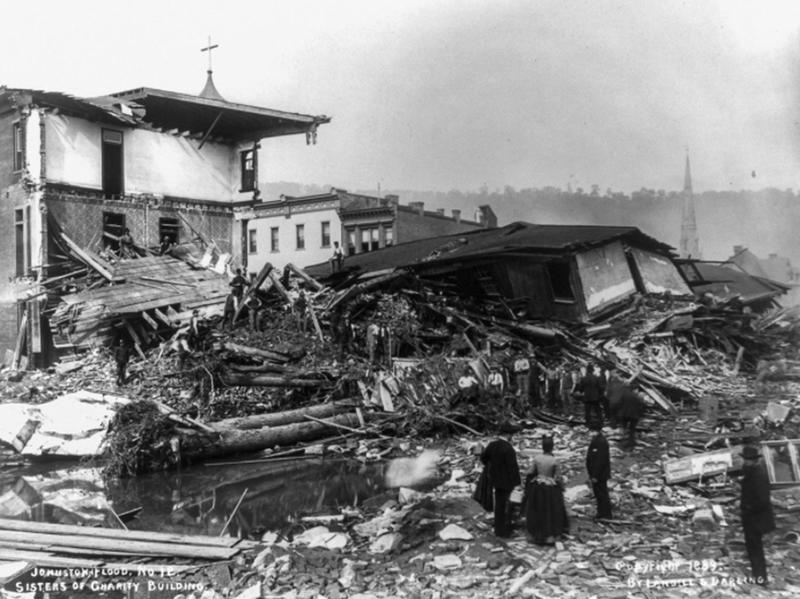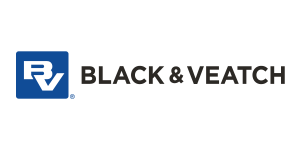Take Action and Be Prepared: May 31st is National Dam Safety Awareness Day
 Photo: Wreckage after the flood in Johnstown, Pennsylvania (via Library of Congress). The issue of dam safety was not widely recognized until 1889 when the failure of South Fork Dam claimed more than 2,200 lives. As we observe the anniversary of this tragedy on May 31, we encourage you to understand the importance of dam safety, the role various parties play, and current dam safety issues. For a technical look at this failure, view the South Fork Dam case study on DamFailures.org.
Photo: Wreckage after the flood in Johnstown, Pennsylvania (via Library of Congress). The issue of dam safety was not widely recognized until 1889 when the failure of South Fork Dam claimed more than 2,200 lives. As we observe the anniversary of this tragedy on May 31, we encourage you to understand the importance of dam safety, the role various parties play, and current dam safety issues. For a technical look at this failure, view the South Fork Dam case study on DamFailures.org.
National Dam Safety Awareness Day
On May 31st, the dam safety community acknowledges National Dam Safety Awareness Day and asks policymakers, lawmakers, and citizens to remember that dam safety is a shared responsibility and to recognize that the risks associated with dams can affect everyone.
Dams provide a life-sustaining resource to people in all United States regions; however, they are innately hazardous structures. Failure or misoperation can result in the release of the reservoir contents - this includes water, mine wastes, or agricultural refuse - causing negative impacts upstream or downstream or at locations remote from the dam. Dam failures have caused loss of human life, economic loss, including property damage, lifeline disruption, and environmental damage.
Recent crises, like the failure of the Edenville and Sanford dams in Michigan, have made major headlines, highlighting the poor condition of many of the nation's dams. Without proper maintenance, routine inspection, necessary upgrades, and coordinated emergency planning, the risks associated with dams become greater. And for those living around dams or in dam-inundation areas, the risk may be great. It is therefore of the utmost importance that those living near dams know their risks. Communication helps increase knowledge, understanding, and awareness of dams and the risks dams pose.
Sharing National Dam Safety Awareness Day Resources on Social Media? Use #DamSafetyDay
For more information on dam safety topics, visit the links below.
Roadmap to Reducing Dam Safety Risks - Learn more about current issues and challenges, as well as what we can do to improve dam safety.
Access State Dam Safety Programs & Contacts - For state-specific dam safety details, visit our map page and click on your state.
Public Safety at Dams (Low-Head Dam Awareness) - Each year, dozens of lives are lost on America’s low-head or “run-of-the-river” dams. Among the victims are boaters, kayakers, swimmers, anglers, and emergency responders. People are often unaware of these dangers, or they underestimate their risk of falling victim to them. It is critically important to understand the scope of this danger and be aware of the many ways you can keep yourself safe and avoid a tragedy.
ASCE Report Card for America's Infrastructure - The American Society of Civil Engineers releases a report card every four years and assigns grades for 17 infrastructure sectors, including dams and levees. ASCE released the 2021 Report Card for America's Infrastructure on March 3rd and both dams and levees received a grade of D.
Dam Owner Academy: Dams 101 (Video) - 'Dams 101' is the first in a series of educational videos for dam owners from ASDSO. This video focuses on the types of dams and how they work. Although this video is part of the dam owner series, this video is suitable for anyone looking for an introduction to dams.
Damfailures.org - Presented within this website are links to individual case studies as well as lessons learned pages that summarize historical dam incidents and failures and the valuable information gleaned from them. Each page contains background and description, photographs, videos, best practices, and other resources related to the case study or lessons learned being addressed.
ASDSO Awareness Center - This area of the ASDSO website includes more information on dam basics.
FEMA National Dam Safety Awareness Day Webpage - The National Dam Safety Program has additional resources available to assist with outreach on National Dam Safety Awareness Day.
Follow ASDSO on Social Media: Twitter, Youtube, LinkedIn
For more information, contact ASDSO Communications Director Katelyn Riley - [email protected]


































